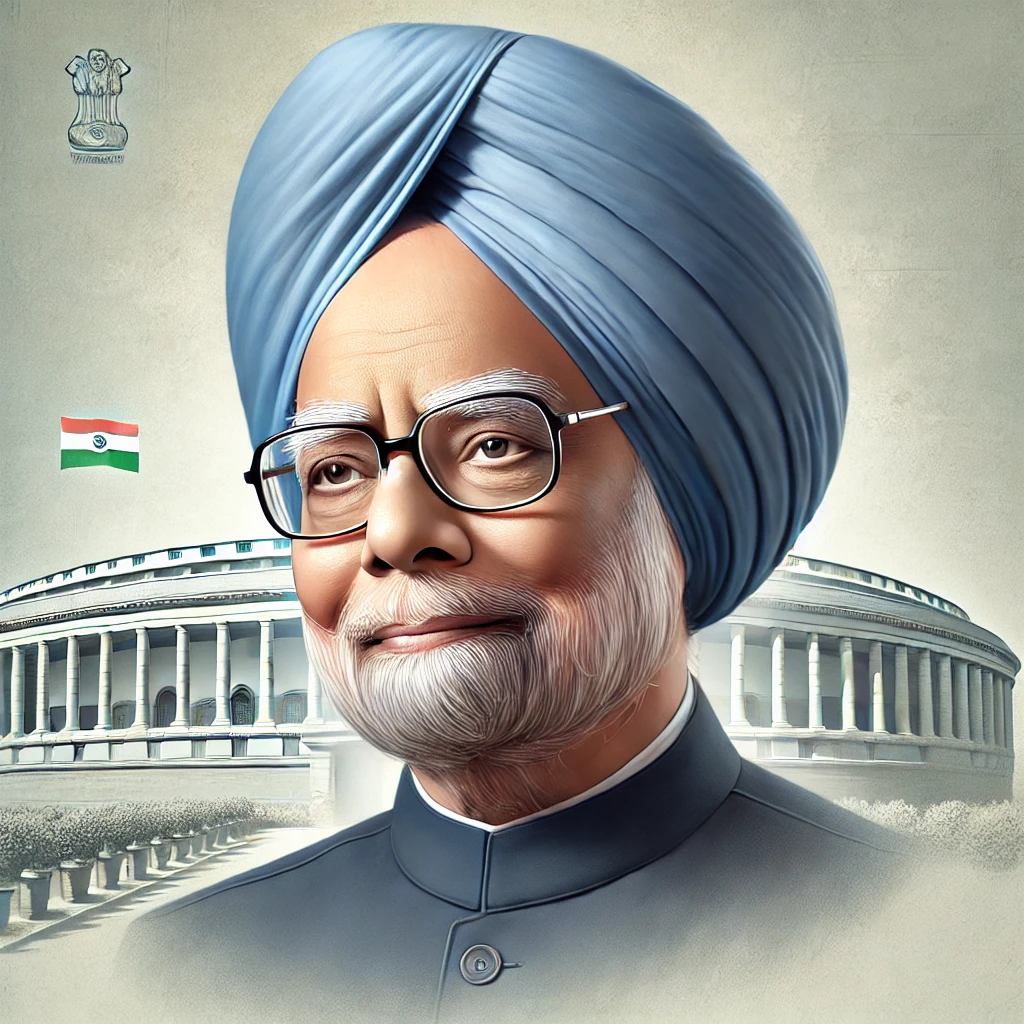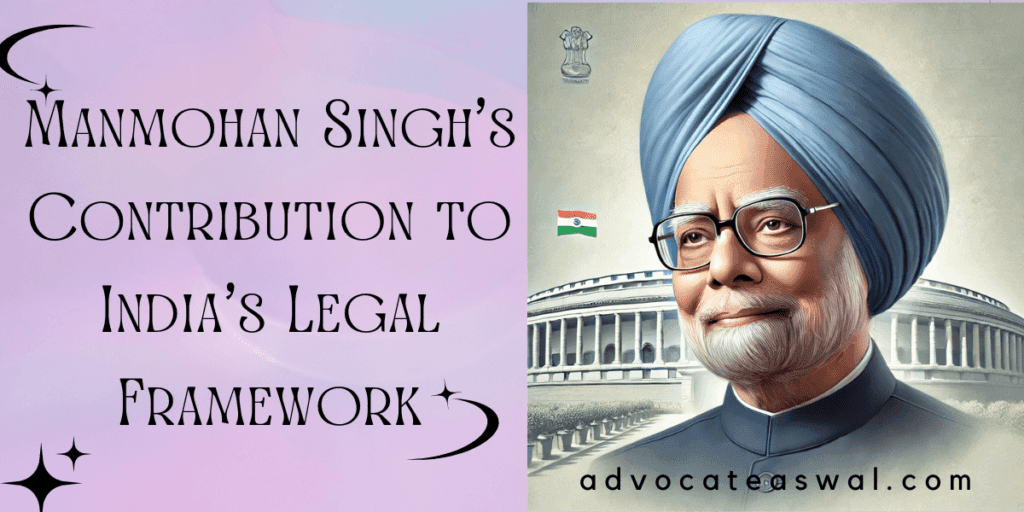Manmohan Singh:
Manmohan Singh, India’s former Prime Minister and one of its most celebrated economists, passed away on December 26, 2024, at the age of 92. He breathed his last at the All India Institute of Medical Sciences (AIIMS), New Delhi, after collapsing at his residence. Despite swift medical intervention, he was pronounced dead at 9:51 p.m., leaving the nation mourning the loss of a statesman who shaped modern India.
Singh’s journey as a leader is a testament to resilience and vision. Serving as Prime Minister from 2004 to 2014, he was at the helm of transformative economic reforms. His leadership not only liberalized India’s economy but also positioned the country as a key global player. Among his notable achievements was the historic nuclear deal with the United States, which redefined India’s energy and strategic relationships.
Born on September 26, 1932, in Gah (now in Pakistan), Manmohan Singh’s academic excellence was evident from an early age. He earned degrees from prestigious institutions such as Cambridge and Oxford, paving the way for an illustrious career. Before becoming Prime Minister, he held numerous significant positions, including Governor of the Reserve Bank of India and Finance Minister. In these roles, Singh championed policies that dismantled economic restrictions and ushered India into an era of robust growth.
A man of humility and intellect, Singh’s personal life was equally inspiring. He is survived by his wife and three daughters, who stood by him through his storied journey. To honor his unparalleled contributions, the Indian government declared a period of national mourning until January 1, 2025, and announced a state funeral for the revered leader.
A Legacy Beyond Economics
Manmohan Singh's Contribution to India's Legal Framework:
While Manmohan Singh’s economic policies have been widely celebrated, his contributions extended to the broader governance framework, including India’s legal structure. During his tenure, Singh supported several legal reforms aimed at modernizing India’s judicial and regulatory systems. These efforts complemented his economic initiatives, ensuring that India’s growth was accompanied by robust legal safeguards.
In this post, we will explore Manmohan Singh’s contributions to India’s legal framework and their enduring impact on the nation. Stay tuned to understand how his vision extended beyond economics to create a stronger, more equitable legal foundation for India.

Introduction
Manmohan Singh, widely celebrated as the architect of India’s economic liberalization, is equally deserving of recognition for his pivotal role in shaping the nation’s legal frameworks. His tenure as a policymaker and leader saw the development of critical laws and regulations that facilitated not only economic growth but also governance and institutional integrity. Singh’s vision was holistic, integrating economic reforms with robust legal structures to ensure sustainable progress. ✨✨✨
This article examines his extensive contributions to the legal domain, analyzing the interplay between his economic policies and their legal underpinnings. Through a nuanced exploration of his career, initiatives, and legacy, we aim to underscore how Singh’s work continues to influence India’s legal and economic landscapes. 📜📚
Early Life and Education
Born on September 26, 1932, in Gah (present-day Pakistan), Manmohan Singh’s intellectual journey reflects a confluence of brilliance and diligence. From Panjab University to Cambridge and Oxford, his academic pursuits laid the groundwork for a career dedicated to governance and reform. Though primarily an economist, Singh’s exposure to global governance structures and legal systems shaped his multidimensional approach to policymaking. 🌍📖
His formative years were marked by a profound understanding of how legal frameworks underpin economic systems. Singh’s studies illuminated the intricate relationships between regulatory mechanisms, economic stability, and societal progress—insights that would later define his policy decisions. 🎓📘
Career Overview: Bridging Law and Policy
Manmohan Singh’s career trajectory demonstrates his adeptness at integrating economic policies with legal principles. As Finance Minister during the 1991 economic crisis, he orchestrated sweeping reforms that necessitated comprehensive legal changes. Later, as Prime Minister, Singh’s administration enacted legislation addressing economic, social, and environmental challenges, embodying his commitment to governance anchored in law. 💼⚖️
Singh’s ability to navigate complex legal terrains was evident in his legislative initiatives, which consistently reflected a balance between innovation and regulation. His tenure epitomized the belief that sound legal systems are indispensable for sustainable economic development. 🏛️🔧
Legal Reforms and Economic Liberalization
The hallmark of Singh’s legacy lies in his role in modernizing India’s legal frameworks to support economic liberalization. The reforms of the 1990s necessitated overhauls in financial and corporate laws, including amendments to the Companies Act and banking regulations. These measures not only attracted foreign investment but also established legal clarity and security for economic transactions. 💰📜
Singh’s pragmatic approach ensured that these reforms were grounded in legal rigor, thereby fostering an environment conducive to business innovation while safeguarding public interest. His work exemplifies the synergy between economic policy and legal infrastructure. 🔍⚙️

Shaping India’s Economic Laws
As Finance Minister, Singh’s initiatives extended beyond immediate crisis management to long-term legal reforms. His policies streamlined taxation, enhanced regulatory compliance, and protected investor rights. The enactment of the Securities and Exchange Board of India (SEBI) Act and other legislation under his leadership provided a robust legal framework for financial markets. 📈🖋️
Singh’s focus on modernizing banking laws was instrumental in ensuring financial stability. By addressing systemic risks and creating mechanisms for dispute resolution, he reinforced trust in the banking sector, laying the foundation for its sustained growth. 🏦🔒
Advocacy for Transparency and Accountability
A cornerstone of Singh’s governance philosophy was his unwavering commitment to transparency and accountability. This was most evident in the enactment of the Right to Information (RTI) Act, which empowered citizens to access government records and hold public institutions accountable. The RTI Act marked a paradigm shift in participatory democracy, embedding transparency into India’s legal and administrative systems. 🕵️♂️📂
In addition to the RTI Act, Singh championed whistleblower protections, recognizing their critical role in exposing corruption and ensuring institutional integrity. These initiatives underscore his dedication to fostering a governance culture rooted in openness and accountability. 🌟🗣️
Contributions to International Legal Frameworks
Manmohan Singh’s influence extended to the global stage, where he played a pivotal role in aligning India’s legal systems with international standards. His work with organizations such as the World Trade Organization (WTO) facilitated India’s integration into the global economy while safeguarding national interests. 🌎⚙️
Through bilateral agreements and international treaties, Singh established legal mechanisms that encouraged foreign investment and technology transfer. These efforts not only elevated India’s standing in global trade but also harmonized domestic laws with international norms, ensuring seamless cross-border collaborations. 🌐🤝
Strengthening Banking and Financial Regulation
Under Singh’s leadership, India’s banking sector underwent transformative legal restructuring. Strengthening the Reserve Bank of India’s regulatory framework and introducing measures to address financial crises were among his key achievements. Singh’s policies targeted systemic issues such as non-performing assets, ensuring the resilience and stability of financial institutions. 📊🏛️
These initiatives provided a legal architecture that balanced innovation with risk management, enhancing public confidence in India’s financial systems. 💡🔗
Environmental Law and Sustainable Development
Singh’s vision extended to integrating environmental considerations into India’s legal frameworks. Recognizing the imperative of sustainable development, he introduced policies addressing climate change, renewable energy, and conservation. Legal provisions for pollution control, wildlife protection, and resource management reflected his commitment to environmental stewardship. 🌿🌍
These measures underscored Singh’s holistic approach, ensuring that economic progress did not come at the expense of ecological well-being. 🌅🛡️
Judicial Impact and Landmark Cases
The legal reforms initiated under Singh’s leadership significantly influenced judicial interpretations and landmark cases. For example, litigation surrounding the RTI Act established critical precedents, expanding its scope and reinforcing its implementation. Such cases highlight the judiciary’s role in operationalizing Singh’s vision for legal and governance reforms. ⚖️📜
Educational Legal Reforms and Institution Building
Manmohan Singh’s contributions to educational legal reforms are equally noteworthy. His advocacy for higher education laws led to the establishment of premier institutions and frameworks that continue to shape India’s academic landscape. Initiatives like the National Knowledge Commission reflected his belief in education as a driver of economic and social progress. 🎓📖
Singh’s vision ensured that educational policies were supported by robust legal foundations, promoting access, quality, and innovation in higher education. 📘🌟
Ethical Governance and Personal Integrity
A defining characteristic of Singh’s leadership was his adherence to ethical governance. His policymaking was guided by principles of integrity, legality, and public welfare. Singh’s personal commitment to ethical standards inspired trust and respect, setting a benchmark for governance rooted in legal and moral rectitude. 🌟🙏
Conclusion
Manmohan Singh’s contributions to India’s legal field are profound and multifaceted. By intertwining economic policies with legal reforms, he created a legacy that continues to influence the nation’s trajectory. Singh’s work underscores the critical role of law in enabling sustainable development, transparency, and accountability. 📚✨
His enduring impact serves as an inspiration for policymakers, legal scholars, and leaders committed to advancing governance through the rule of law. 🌟⚖️


Nice 👍